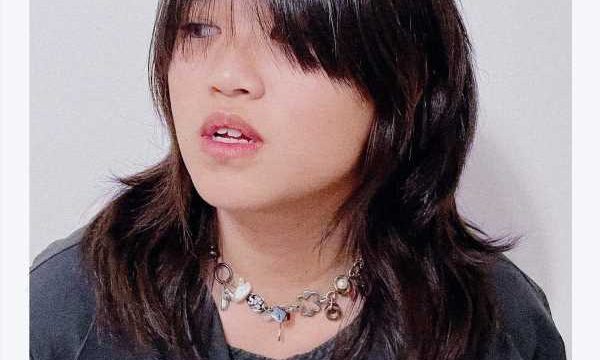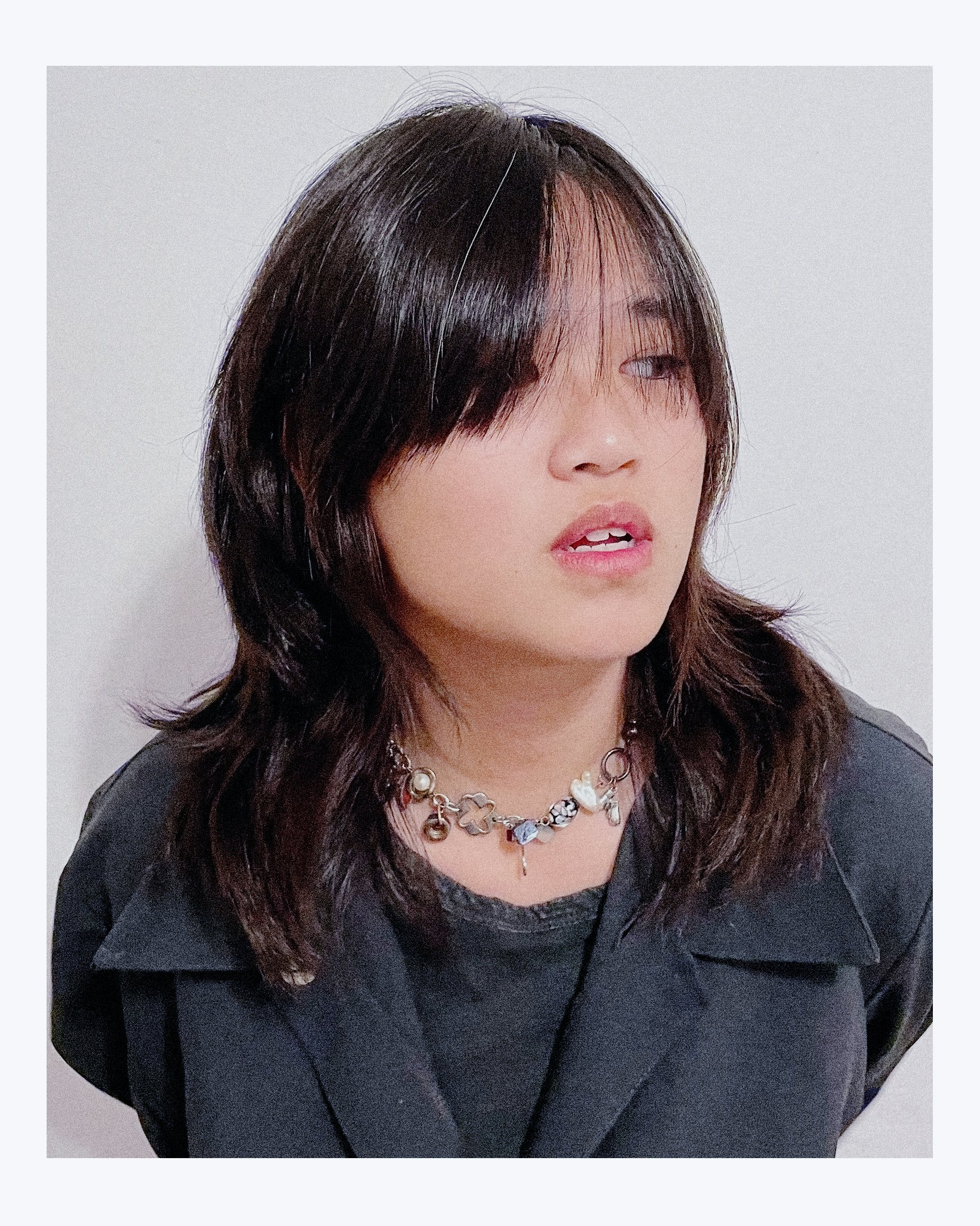New Year’s Eve is not for everyone. Beneath the countdowns and parties often lies that same old, familiar existential dread masquerading in glitter and tinsel. In “Everybody’s Birthday,” a single from Hana Vu’s debut album, Public Storage, the 21-year-old musician paints a lurid picture of New Year’s reflections, singing “Everybody knows that it’s all end times / And everyone I know is blue” in her signature swooning contralto. “It’s like the worst of all the holidays combined,” Vu jokes during a video call from her Los Angeles apartment. “It’s cold, there’s still Christmas music playing, you’re thinking about all of your past regrets, and you have all the shame of being single, like on Valentine’s Day.”
Public Storage’s lush, hazy-edged pop sensibility comes into contrast with the album’s cover, a photograph of the inside of Vu’s mouth rendered in bruised greens and yellows. Vu says she drew inspiration for the cover art from Bruce Nauman’s Studies for Holograms. “It’s gross, but it’s also the rawness of himself,” she says of the artist’s jaundiced, screen-print portraits. “I was inspired by how he was able to make something that felt personal and impersonal at the same time.”
Vu, a musician who often writes songs through the perspectives of others, is well-versed in the concept of accessing vulnerability through detachment. “There’s a little more theater in Public Storage,” she explains. “I tried to play core themes and play more of a character in my writing. It’s less about being specific to my own life and playing up certain themes.”
Vu’s previous double EP, Nicole Kidman / Anne Hathaway, which includes a delightfully off-kilter cover of “Reflection” (of Mulan fame), is loosely aggregated around the narrative of an insecure starlet. The character inspiration for Public Storage takes on a slightly different angle. “Who was the guy that was about to kill his son for God? Abraham and Isaac,” she laughs, adding that she was “trying to write through the perspective of him—a very desperate person, desolate and lost.”
For the most part, the Los Angeles native’s relationship with music has been self-guided, originating when she first picked up her dad’s guitar and taught herself how to play. She went on to play with surf-rock and punk bands in the local DIY scene, posting her own music, often recorded with her iPhone and Apple headphones, to Bandcamp. These songs caught the attention of Gorilla vs. Bear, who released Vu’s debut EP in 2018, which featured the bass-heavy sad-girl anthem, “Crying on the Subway,” and cemented her status as a bedroom pop star.
“I think I got that moniker when I was first starting out,” she says of the bedroom pop label. “At that time I was like, ‘No… I’m cooler than that.’ But now that I look back, I’m like yeah that’s really what it was. I was making lo-fi teen beats. And you know, I like bedroom pop better than lo-fi teen beats. Now it’s a bit different, because at that time I didn’t have the resources to make better music.”
While her equipment may have changed, her musical influences have not. Vu cites Lana del Rey, St. Vincent, and Taylor Swift as musicians who have been instrumental to shaping her own storytelling in song-writing. “I think I just have these core elements that relate to what I grew up listening to as an early teen… I feel like they will just be my influences forever,” she says. “I’m a hardcore Taylor Swift fan, I never went to her shows or wore the merch or anything, but I was really into the music. Honestly, now I feel a little bitter now that everyone is like ‘I love Taylor,’ and she is so cool. But it makes sense because she is a genius.”
Like her favorite artist, Vu’s music treats the rocky emotional terrain that often characterizes the transition from childhood to adulthood with respect and reverence. In this way, Vu’s songs take on a tone of universality, transcending the adolescent existentialism that they might have been born from when she first began writing. Although Public Storage marks her transition away from bedroom pop and into a genre of her own making, Vu notes that her new work is more of a continuation than a departure. “I don’t listen to my old work much, but I think I’m the same person. I think maybe I just got better at describing myself. It’s like when you’re a baby and you don’t have the words yet to say what you’re thinking,” she says. “Sometimes I listen to the old stuff, it grounds me in the way where I’m like I’m the same as I always was. It’s like looking at a journal.”
Source: Read Full Article

